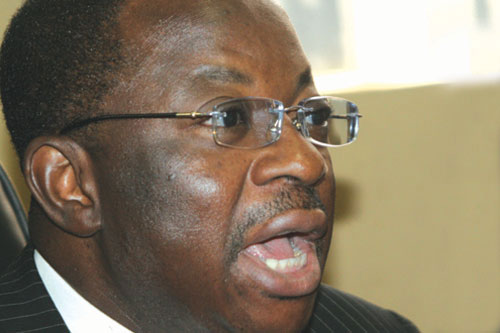The Former Managing Director of the defunct Intercontinental Bank Plc. Mr. Erastus Akingbola has challenged the jurisdiction of a Lagos High Court to register a N212.2 billion judgment delivered against him by a London court.
The London court had ordered Akingbola to pay Acce
In order to enforce the judgment in Nigeria, the judgement creditor, (Access Bank) in an ex-parte application brought before Justice Adedayo Oyebanji of the Lagos High Court sought registration of the judgment and the accompanying order of Justice Burton of the London Court.
The judgment was dated September 13, 2012.
Justice Oyebanji in her ruling on the ex-parte ordered Mr Akingbola, to pay Access Bank Plc, the judgment sum of N212.2bn.
Following the transfer of Justice Oyebanji, the case went before Justice Candide Johnson who today listened to arguments from Mr Akingbola’s counsel, Chief Wole Olanipekun (SAN). The lawyer asked the court to quash the registration of the foreign judgment for lack of jurisdiction.
Olanipekun argued that the judgment creditor (Access Bank) failed to comply with some condition precedent before the registration could be completed.
He also submitted that Section 251 of the constitution vested jurisdiction on the Federal High Court and not on the State High Court.
The lawyer told the court that the suit filed in London by the judgement Creditor was before a Commercial Division of the court which is the equivalent of a Federal High Court here in Nigeria.
Besides, Olanipekun contended that the judgment of the foreign court which was registered was not certified in compliance with the rules of the London court hence it was invalid.
He stressed that the judgment debtor (Akingbola) was not put on notice before the registration of the foreign judgment was done.
Citing a plethora of legal authorities, he asked the court to allow his application and to set aside the ex-parte order earlier obtained by Access Bank.
Counsel to Access Bank, Koyinsola Ajayi (SAN) in his counter affidavit, dated October 10, 2013 informed the court that efforts by the court bailiff to serve Mr Akingbola before the registration of the judgment proved abortive as he allegedly evaded service.
On the issue of jurisdiction, Ajayi submitted that the proposition that only the Federal High Court has jurisdiction to register foreign judgments should be discountenanced as the State High Court has unlimited power to look into it.
He argued that Registration and Enforcement of Foreign Judgments, Cap 175 of 1958, and section 272 of the Constitution empowered the State High Court to adjudicate on the matter.
On the issue of certification of judgment, Ajayi submitted that it would be against public interest if the court refused to enforce a ‘’money judgment’’
He further informed the court that Akingbola had appealed against the judgment in the London court and his appeal had been refused. Ajayi therefore urged the court to dismiss the application and allow the registration of the judgment.
Channels Television’s judiciary correspondent, Shola Soyele reports that after listening to the arguments of both lawyers, Justice Candide Johnson fixed the 20th of February to give his ruling on the application.



